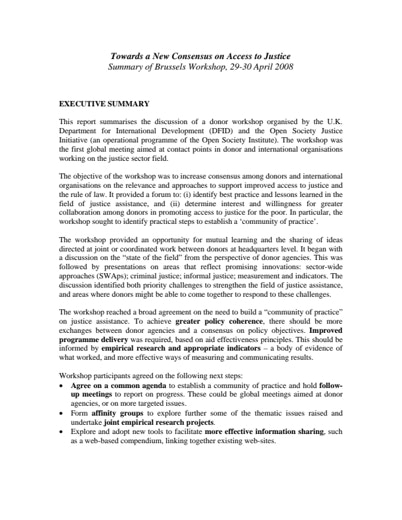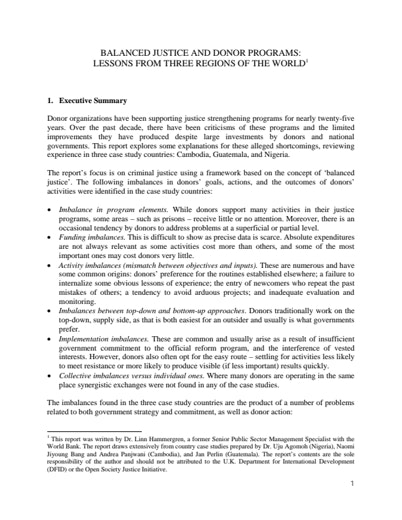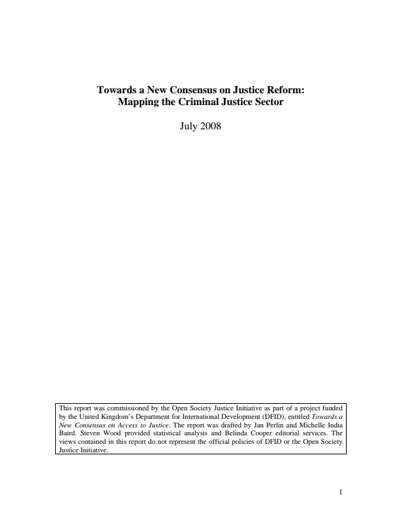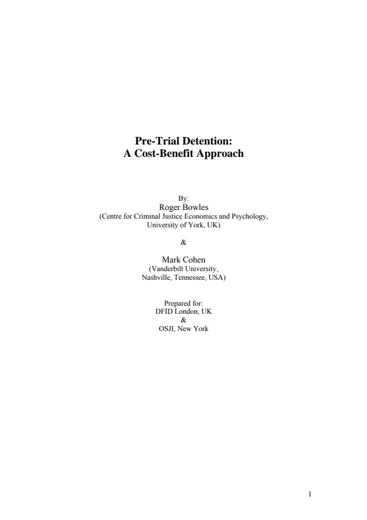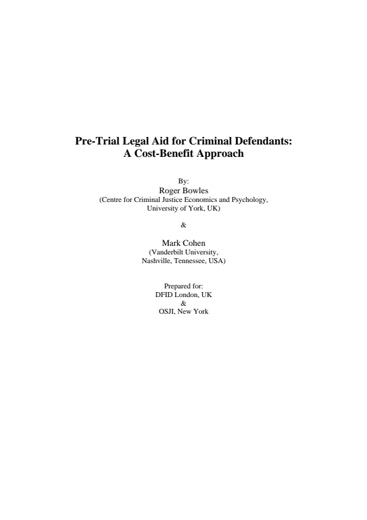New Reports Urge Donors to Enhance and Improve Criminal Justice Investments
The Open Society Justice Initiative released a series of reports today that examine donor and government support for criminal justice reform projects, offer recommendations for more effective investment in the field, and provide methodologies for calculating the costs and benefits of pretrial detention and legal aid.
The reports are part of a larger Justice Initiative campaign to both gauge existing support for justice sector reform and encourage more coordinated and efficient investment in reform projects. The Justice Initiative campaign—which received backing from the United Kingdom's Department for International Development—focuses on legal aid and pretrial detention and seeks to mobilize donors to invest in better criminal justice projects.
The reports issued today include:
Towards A New Consensus on Access to Justice (17 pages) summarizes a workshop co-hosted by Department for International Development and the Justice Initiative in April 2008, that was attended by representatives from some 30 international donor organizations. The objective of the workshop was to increase consensus among donors and international organizations on ways to support improved access to justice and the rule of law. It provided a forum to:
- (i) identify best practice and lessons learned in the field of justice assistance, and
- (ii) determine donors' interest in collaboration to promote access to justice for the poor.
In particular, the workshop sought to identify practical steps to establish a donors' community of practice.
Balanced Justice and Donor Programs: Lessons from Three Regions of the World (31 pages) takes a close look at the effectiveness of justice-strengthening programs in three countries—Cambodia, Guatemala, and Nigeria—and finds weaknesses including a lack of attention to some areas of the justice system, absence of synergy among donors, and inadequate monitoring and evaluation. The report found that, in the three countries analyzed, implementation imbalances were common and reflect some persistent and problematic patterns in donor assistance. For example, donor engagement in penal reform—including pretrial detention reform—is sparse. The report found that legal assistance projects tend to be small-scale, focus only on particular themes or constituencies (e.g., domestic violence), and are often funded by donors precisely because the recipient government is unwilling to devote resources or attention to the area but will allow the donor to make a nonstructural intervention.
Towards A New Consensus on Justice Reform: Mapping the Criminal Justice Sector (119 pages). The report looks at the donors investing in criminal justice reform, their policies and areas of interest, the countries in which they invest, and existing collaboration among them. It also provides recommendations for improved donor effectiveness. The report is intended to increase understanding of the extent and scale of international support in the justice sector. Significantly, the report finds that donor investment in justice is a growing area of activity. Moreover, donors are approaching justice reform from various perspectives, including human rights, civil society strengthening, post-conflict peace-building and reconstruction, governance, security sector reform, and legal and judicial development. However, donors often lack the appropriate tools to ensure coherent and effective aid activities in the field, and to promote a coordinated approach in the implementation of projects.
Pre-Trial Detention: A Cost-Benefit Approach (37 pages), by Roger Bowles of York University and Mark Cohen of Vanderbilt University. This study establishes a framework for exploring the economic and social costs of pretrial detention, and for determining optimal pretrial detention and bail policies.
Pre-Trial Legal Aid for Criminal Defendants: A Cost-Benefit Approach (20 pages), by Bowles and Cohen. The report considers what impact legal aid may have in early stages of criminal proceedings, including its role in bail determination.
Topics
- Climate Justice
- Digital Rights and Fair Elections
- Discrimination and Racial Justice
- International Crimes
